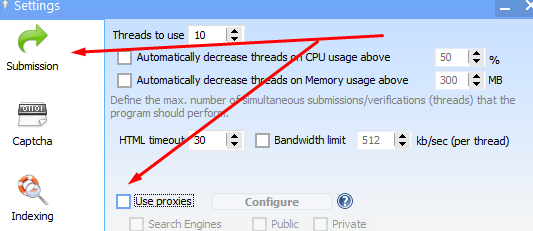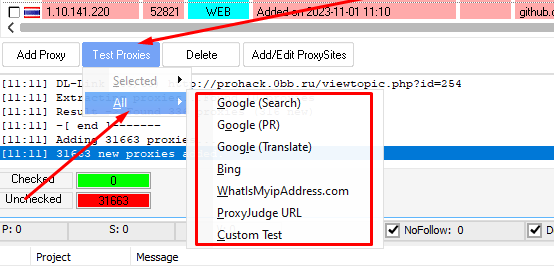IPv4
From $0.72 for 1 pc. 37 countries to choose from, rental period from 7 days.
IPv4
From $0.72 for 1 pc. 37 countries to choose from, rental period from 7 days.
IPv4
From $0.72 for 1 pc. 37 countries to choose from, rental period from 7 days.
IPv6
From $0.07 for 1 pc. 14 countries to choose from, rental period from 7 days.
ISP
From $1.35 for 1 pc. 23 countries to choose from, rental period from 7 days.
Mobile
From $14 for 1 pc. 18 countries to choose from, rental period from 2 days.
Resident
From $0.70 for 1 GB. 200+ countries to choose from, rental period from 30 days.
Use cases:
Use cases:
Tools:
Company:
About Us:
Integrating proxies into GSA Search Engine Ranker is crucial for maintaining smooth and stable operation. The tool performs automated submissions across a wide range of websites to help build backlinks efficiently. Running campaigns without support can quickly lead to blocked IP addresses, failed submissions, and reduced success rates. This guide outlines the importance of using a GSA Search Engine Ranker proxy, followed by a clear walkthrough on how to configure them within the tool.
The app operates by submitting content to hundreds or even thousands of web platforms. If all this traffic originates from a single IP address, the activity may be interpreted as spam.
Platforms that detect such patterns may restrict or block access, and in some cases, the IP can be completely blocked. This makes it a critical component of any campaign.
Using a GSA Search Engine Ranker proxy reduces the chance of detection and blocking by distributing your submissions across multiple IPs. This setup enhances privacy, stabilizes operations, and increases overall submission success.
To properly configure it, follow the steps below. These instructions assume you have already purchased private ones and have them ready in the standard format.
Launch the software and open the Options menu from the top toolbar to access the settings panel.

Inside the settings menu, locate the checkbox labeled Use Proxies. Make sure this box is checked. This tells the software that all outgoing connections should be routed through a GSA proxy server.

Next, click Configure beside the option to open the management panel, where you can import, test, and manage your list.

Prepare your list in the following format:
IP:Port:Username:Password
Copy the list to your clipboard. In the GSA interface, click Add Proxy, then select Import from Clipboard. All of them in the correct format will now be imported into the system. The next step is to check if they’re working.

![]()
To verify that your servers are valid, click on Test Proxies and select All, then choose Against Anonymous Test URL. This function checks whether your GSA Search Engine Ranker proxies are working and anonymous. If the test succeeds, confirmation messages will appear next to each server. Any server that fails should be removed or replaced.

Back on the management screen, locate the column or checkboxes where you can specify its type. Select Private for all the servers you just imported. It’s recommended to avoid public or shared options as they are often flagged or blocked by target websites. Read also about SOCKS proxies as they fit perfectly for this application.
Return to the main GSA interface. Go to the project or campaign you want to assign. Open the task settings and ensure the Use Proxies option is checked. Select the GSA Search Engine Ranker proxy type as Private.
If you're managing multiple campaigns or need more control, you can assign specific servers per task or project, depending on your setup. Many users also apply best practices on how to use proxies for GSA more efficiently across different types of link-building projects.
Once your servers are assigned and tested, click OK to save your configuration. You can now begin your GSA campaign using the newly integrated setup.
This configuration helps simulate natural link-building behavior. Using proxies for GSA Search Engine Ranker reduces the risks commonly associated with high-volume automation tools and helps maintain consistent performance over time.

By using a private, reliable GSA Search Engine Ranker proxy and setting them up correctly inside GSA, you maintain a stable, secure, and effective automation environment. Avoid public solutions whenever possible.
If you're new to selection, there are resources that explain how to pick the best GSA SER proxies based on your needs and budget. Proper setup and maintenance of proxy configurations help automation run efficiently and remain stable over time.
